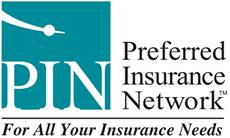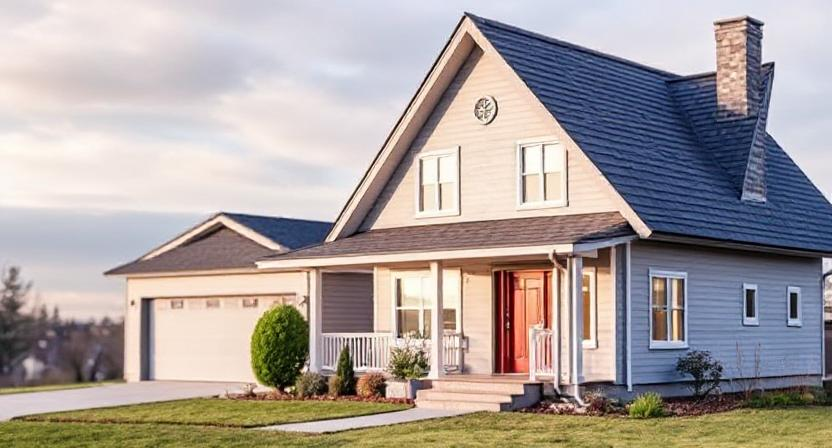As a homeowner, you may have noticed the steady increase in your home insurance premiums over the years. It’s essential to understand what factors are contributing to this rise and how you can take control of the situation. By implementing a few strategic steps, you can potentially mitigate these escalating costs and secure more affordable coverage for your home. Let’s explore practical solutions to combat the challenge of rising home insurance expenses and safeguard your financial well-being.
Key Takeaways
- Shop around to compare quotes and find better rates.
- Consider increasing deductible amounts for lower premiums.
- Enhance home security to reduce insurance costs.
- Bundle home and auto insurance for savings.
- Maintain a good credit score for lower premiums.
Shop Around for Better Rates
To save on home insurance costs, start by shopping around for better rates. Don’t settle for the first quote you receive. Take the time to compare prices from different insurance companies. You might be surprised at the savings you can find just by exploring your options.
Look for discounts that may apply to you, such as bundling your home and auto insurance with the same provider or installing security devices in your home. Many insurers offer discounts for these types of measures.
When shopping for better rates, consider factors such as coverage limits, deductibles, and any additional features included in the policy. Make sure you understand what’s covered and what’s not, so you can make an informed decision.
Increase Your Deductible Amount
Consider the potential savings that come with increasing your deductible amount on your home insurance policy. By opting for a higher deductible, you can lower your monthly premiums and potentially save a significant amount of money in the long run.
Here are some key points to keep in mind when considering this option:
- Immediate Premium Reduction: Increasing your deductible typically results in an immediate reduction in your insurance premiums.
- Long-Term Savings: While you may have to pay more out of pocket in the event of a claim, the overall savings on your premiums can outweigh this cost over time.
- Evaluate Your Financial Situation: Before raising your deductible, assess your financial stability to ensure you can comfortably cover the higher deductible amount if needed.
- Consult with Your Insurance Provider: Talk to your insurance agent to understand how adjusting your deductible can impact your policy and to explore the potential savings available to you.
Enhance Home Security Measures
By enhancing your home security measures, you can proactively protect your property and potentially lower your home insurance costs. Installing security systems, such as alarms and cameras, can deter burglars and alert you and authorities in case of any suspicious activity. Reinforcing doors and windows with sturdy locks and shatterproof glass can also make your home more secure. Additionally, joining a neighborhood watch program can create a sense of community security and vigilance.
Consider the following table for some simple yet effective home security measures:
| Security Measure | Description | Cost Range |
|---|---|---|
| Install Smart Doorbell Camera | Monitor and interact with visitors remotely | $100 – $300 |
| Upgrade to Smart Locks | Keyless entry with remote access control | $150 – $250 |
| Motion-Activated Lights | Illuminate dark areas and deter intruders | $20 – $50 |
| Trim Landscaping | Remove hiding spots near windows and entrances | $0 – $100 |
| Security Window Film | Strengthen glass against break-ins and storms | $10 – $25 per sq ft |
Bundle Home and Auto Insurance
Enhancing your home security measures can’t only safeguard your property but also potentially reduce your home insurance costs.
Another way to save on insurance is by bundling your home and auto policies together. Here’s how bundling can benefit you:
- Cost Savings: Insurance companies often offer discounts when you bundle your home and auto policies with them. This can lead to significant cost savings on your overall insurance premiums.
- Simplified Management: Bundling your policies means dealing with only one insurance company for both your home and auto insurance needs. This can make managing your policies simpler and more convenient.
- Increased Convenience: Having both your home and auto insurance policies with the same provider can streamline processes like claims handling and policy renewals, making it more convenient for you.
- Potential Additional Discounts: In addition to the initial savings, bundling your policies may make you eligible for further discounts or benefits from your insurance provider.
Maintain a Good Credit Score
To potentially lower your home insurance costs, maintaining a good credit score is crucial. Your credit score is a significant factor that insurance companies consider when determining your premium rates. A good credit score indicates financial responsibility and can lead to lower insurance costs, while a poor credit score may result in higher premiums. Here’s a table to help you understand how credit scores can impact your home insurance rates:
| Credit Score Range | Average Annual Home Insurance Rate |
|---|---|
| 300 – 579 | $2,000 |
| 580 – 669 | $1,500 |
| 670 – 739 | $1,200 |
| 740 – 799 | $1,000 |
| 800 – 850 | $900 |
Review and Adjust Coverage Annually
It’s important to review and adjust your home insurance coverage annually to ensure you have adequate protection for your property and belongings. Here are some key reasons why this practice is crucial:
- Changes in Property Value: Your property’s value may have increased or decreased over the past year, impacting the amount of coverage you need.
- New Purchases: If you’ve acquired valuable items like jewelry, art, or electronics, you may need to add additional coverage to protect these assets.
- Policy Updates: Insurance policies and regulations can change annually, so reviewing your coverage ensures you’re up to date with the latest requirements.
- Discount Opportunities: By reviewing your policy annually, you can explore potential discounts or savings that you may qualify for based on changes in your circumstances or insurance provider offerings.
Taking the time to review and adjust your home insurance coverage each year can help you avoid being underinsured or paying for coverage you no longer need.
Frequently Asked Questions
Can Making Home Renovations Affect My Insurance Rates?
Yes, making home renovations can affect your insurance rates. Improvements like installing a new roof or updating your plumbing and electrical systems could potentially lower your rates. Contact your insurance provider to discuss potential discounts.
What Is the Impact of Filing a Claim on My Premium?
Filing a claim may increase your premium. Insurers could view you as a higher risk. Consider the cost of claims versus potential rate hikes. Evaluate if filing is necessary or if covering the expense independently is more beneficial.
Are There Any Discounts Available for Retirees or Seniors?
Yes, there are discounts available for retirees and seniors. These discounts can help you save money on your home insurance premiums. Contact your insurance provider to inquire about specific discounts and eligibility criteria.
How Does the Location of My Home Influence Insurance Costs?
Your home’s location directly impacts insurance costs. Factors such as crime rates, proximity to fire stations, and natural disaster risks play a role. Choosing a safer neighborhood can help lower premiums and provide peace of mind.
Is Flood Insurance Included in Standard Home Insurance Policies?
Yes, flood insurance is typically not included in standard home insurance policies. You may need to purchase a separate flood insurance policy to protect your home from flood-related damages, especially if you live in a high-risk flood zone.
Conclusion
Overall, taking proactive steps to address the rising cost of home insurance can lead to significant savings and improved policy management. By shopping around for competitive rates, increasing your deductible, enhancing home security, bundling policies, maintaining a good credit score, and reviewing coverage annually, you can ensure you are adequately protected while also reducing financial burdens. Stay informed, stay proactive, and enjoy the benefits of a well-managed home insurance policy.

